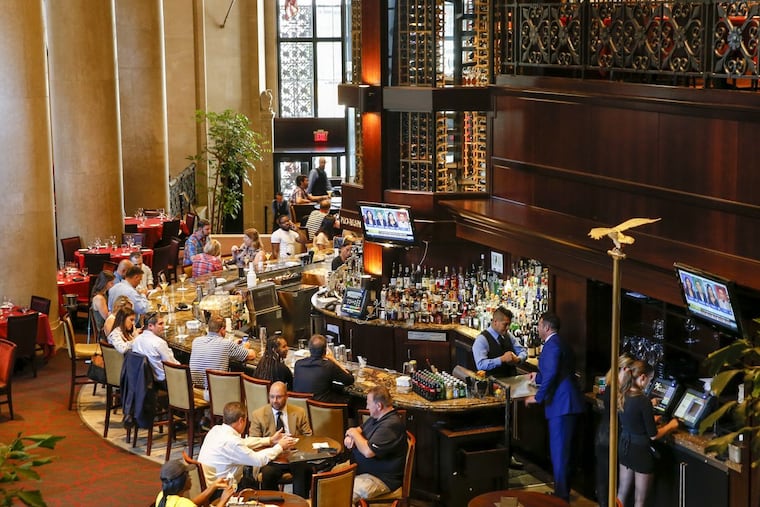Del Frisco’s broke Philadelphia’s Fair Workweek law. It now has to pay workers $24,500
The settlement is the largest since the law went into effect two years ago.

Del Frisco’s Double Eagle Steakhouse, a high-end restaurant in Center City, broke the city’s Fair Workweek law and has agreed to pay 90 workers a total of $24,500.
The worker protection law, which went into effect in 2020, mandates predictable schedules for employees of restaurant, hotel, and retail chains. The Del Frisco’s settlement is the largest for Fair Workweek to date.
These low-wage workers said they struggled to plan their lives around last-minute, erratic schedules, while corporations said they needed flexibility to schedule workers in response to the ebbs and flows of business.
The restaurant, at 15th and Chestnut Streets, broke Philadelphia law by failing to give workers 14 days notice of their schedules in early 2021, according to the violation notice sent to the company. The restaurant also did not give some workers an estimate of hours they would work in a week, which is required under the law, and gave workers fewer hours than it estimated.
» READ MORE: Two Philly Walmart workers sue retail giant for alleged labor violations
Del Frisco’s, a restaurant chain owned by the Houston-based company Landry’s, said it did not believe it did anything wrong. “However, rather than fight the city, we agreed to pay an agreed upon penalty and put this matter behind us,” a spokesperson said.
The employee who filed the complaint with the city’s Office of Worker Protection did not want to be named but encouraged service industry workers to know their rights. “As someone who has been in the industry for six years, don’t let companies bully you into doing something,” the employee said in a statement provided to the Office of Worker Protection. “Reach out to the proper source if you have questions and find out the answer.”
From complaint to settlement, the Del Frisco’s case took nearly two years. This is an unusually long time for a Department of Labor complaint, said Candace Chewning, who runs the city Department of Labor’s Office of Worker Protection, but Fair Workweek investigations tend to take longer because the office can investigate up to two years of compliance documents before making a determination. There was also an additional delay because Del Frisco’s sought an appeal but later dropped it.
» READ MORE: Retail and fast-food workers: These are your rights under Philadelphia’s Fair Workweek law
Fair Workweek complaints have risen this year, according to the office. In the first six months of this year, more complaints were filed than all of last year, when 18 complaints were filed.
Other employers that have broken the law include Target and Rite Aid, said Obafemi Matti, a spokesperson for the Office of Worker Protection.
Philadelphia Walmart workers are also suing the corporation for allegedly violating their rights under the Fair Workweek law.
Several other cities enforce similar scheduling laws. Just last week, Chipotle agreed to pay $20 million to about 13,000 workers in a Fair Workweek settlement in New York City.
In the first six months of this year, the Office of Worker Protection, which enforces six laws, closed investigations that resulted in more than $53,000 paid to workers. Some of the biggest payouts from employers includes St. Christopher’s Hospital and Maxim Healthcare, both of which violated the city’s paid sick leave law, and American Foods and Nazario Juarez/Latino Construction, which stole wages from their workers.
Eight employers are currently on the office’s “bad actor” list, meaning they’ve violated labor laws and refused to comply: Pavescapers, Frank Fleming’s General Contractors, Plenty Cafe (which closed in 2019), Milo Restaurant, Divine Mercy Homecare, Flexright Solutions, Carvallo Construction, and Vesbro/Escape Room Philly.
The Inquirer’s journalism is supported in part by The Lenfest Institute for Journalism and readers like you. News and Editorial content is created independently of The Inquirer’s donors. Gifts to support The Inquirer’s high-impact journalism can be made at inquirer.com/donate. A list of Lenfest Institute donors can be found at lenfestinstitute.org/supporters.